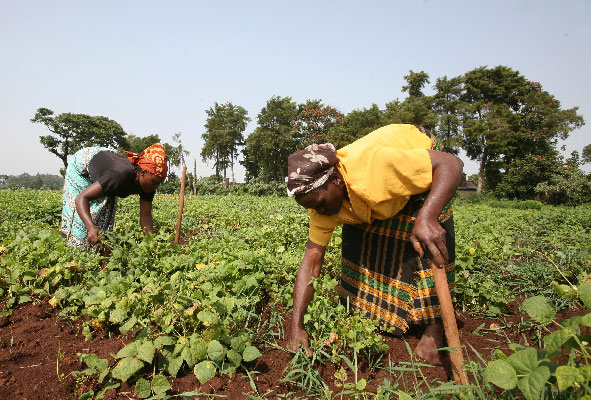Address climate change effects to ensure food security
The government should majorly focus on addressing the inadequacies in addressing climatic risks that favor agriculture.

By Comfort Tusingwire
Dear editor, on 16th October 16, 2023, Uganda joined the rest of the world to celebrate World Food Day under the theme “WATER IS LIFE, WATER IS FOOD, LEAVE NO ONE BEHIND”.
This is coming at a time when Uganda is experiencing a fast growing population which is expected to reach one hundred million people by 2050, according to World Food Programme report.
The presence of third largest population pose further challenges to the country’s ability to achieve sustainable development goal two of Zero Hunger and food security at large.
Currently, Uganda is grappling with significant impacts of climate change which include but not limited to changing weather patterns, drop in water levels and increased frequency of extreme weather events like floods as well as drought whose social economic impacts have not been only a havoc to many communities but have also caused great threats to their lives and food insecurity.
Worse still, in the article published by Daily Monitor on 24th July 2023 it was noted by World Food Programme that 14 million people remain underfed in Uganda and Uganda’s food insecurity still ranked very serious.
You may all agree with me that this has a far reaching impacts on marginalized communities, youth and the future generation.
As we celebrate the world Food Programme Day, I urge the government of Uganda to rethink and robust their investment in agriculture which time in memory hasn’t been just a back bone of Uganda’s economy but also had labelled Uganda food secure country regardless of its small economy.
The government should majorly focus on addressing the inadequacies in addressing climatic risks that favor agriculture.
The government must also empower local communities who have been pioneers in carrying out agriculture to adopt climate- smart agriculture approaches across the agriculture and food value chains and via policy and technological interventions to enhance productivity, improve resilience and reduce greenhouse emissions through training farmers to nourish soil, conserve moisture, intercrop, use water and land sufficiently to ensure agricultural development and sustainability.
The government of Uganda should also increase investments and utilization of renewable energy resources which include hydro power, biomass, geothermal and wind energies which are clean, reliable affordable, accessible and climate friendly which ultimately boost major economic activities like agriculture, manufacturing which are prone to climate change leading to increased food production and mitigating the effect of food insecurity.
Last but not least, I urge our government to take the global crisis of climate so serious to accelerate its efforts to address the increasing impacts through restoration programmes like afforestation, energy transition among others to ensure good weather patterns, increased productivity, food security and sustainable development.
Comfort Tusingwire is a climate enthusiast and an environmental Economist
Email: comforttusingwiretc@gmail.com







